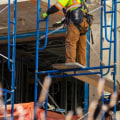Older HVAC units tend to be less efficient than newer models, and as they age, wear and tear further reduces their efficiency. As technology in the HVAC industry has improved, newer models have become increasingly energy efficient, including AC Repair in Ladson SC. This is usually marked by their SEER rating, or seasonal energy efficiency index, for its acronym in English. The first thing any upgrade will do is reduce its energy consumption. A 20-year-old air conditioning system can use 6 kWh of electricity to cool an average-sized home.
A modern air conditioning system could cool that same house with just 1.71 kWh of electricity. This incredible performance is made possible by advanced features such as the two-stage scroll compressor, which has replaced the old single-phase piston-driven compressors of the past. In general, the average lifespan of an HVAC system (heating, ventilation and air conditioning) is 15 to 20 years old. In 2001, the Australian government introduced minimum energy performance standards (MEPS) for three-phase air conditioners, and in 2004 for single-phase units, air conditioners have since become much more efficient and energy efficient.
Advances in technology and an increased focus on energy efficiency have led to significant improvements in the performance of air units and systems. conditioned.


